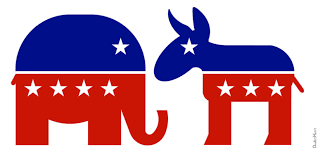
With tears in my eyes, I watched US inauguration days in 2017 and 2025. The first tears were for Michelle and Barack Obama's dignified yet pained departure. The second set, eight years later, marked an even darker turn – Trump's return to power after Biden's tenure, a moment that seemed to confirm democracy's fragility.
Looking back, Obama's presidency now appears as a last glimpse of traditional American leadership. While his legislative achievements were constrained by a Republican-dominated Congress, his dignity in office stands in stark contrast to what followed. Biden, despite significant accomplishments with infrastructure, climate action, and economic recovery, faced similar congressional gridlock and ultimately couldn't prevent Trump's return.
The system's flaws have become glaringly apparent. The Electoral College, partisan gridlock, and the power of what Trump called "the swamp" – which he not only failed to drain but expanded – have revealed deep structural problems in American democracy. The minority rule through Senate manipulation and gerrymandering has become more entrenched than ever.
Trump's return campaign conveniently ignored both Obama's and Biden's achievements: economic recovery from the Bush-era crisis, pandemic recovery, job creation, and infrastructure development. The irony remains – Trump's first term benefited from Obama's groundwork, and now he inherits an economy strengthened by Biden's policies, though MAGA supporters will never acknowledge this.
Looking at Trump's rhetoric over the years, certain blind spots persist:
- He still rails against Europe, now emboldened by the success of populist allies like Wilders, but forgets that American global leadership was built on alliances, not isolation. His celebration of NATO's weakening overlooks how U.S. actions in Iraq, Afghanistan, and Libya – which he once criticized – created the migration crises he exploits.
- His "America First" ideology has only strengthened similar movements worldwide. China has expanded its global influence, while Europe has developed greater strategic autonomy. His anti-immigration stance still ignores that America's strength was built by immigrants, including the skilled workers needed for today's technology-driven economy.
- The global landscape has shifted dramatically since 2017. Russia's actions in Ukraine, China's growing assertiveness, and the rise of AI and automation have created new challenges that require international cooperation, not isolation. Yet Trump's approach remains unchanged – promoting an America-alone policy in an increasingly multipolar world.
- The "Buy American, Hire American" slogan has evolved into a broader deglobalization movement, with every major power pursuing self-interest first. Europe, China, India, and other emerging powers have adapted, forming new alliances and trade relationships that increasingly bypass American influence.
As we witness this second Trump inauguration, the consequences of American isolationism are clearer than ever. The world won't wait for America to engage constructively again. Other powers are rising, alliances are shifting, and the global order is being reshaped.
To the American people facing another four years under Trump: May you find the strength to preserve what remains of your democratic institutions. The world has changed since 2017, but Trump's understanding of it hasn't. Meanwhile, the rest of us will continue adapting to a post-American world order.
As for making America great again? Perhaps it's time to recognize that greatness comes from engagement and cooperation, not isolation and conflict. But that's a lesson that seems destined to go unlearned.